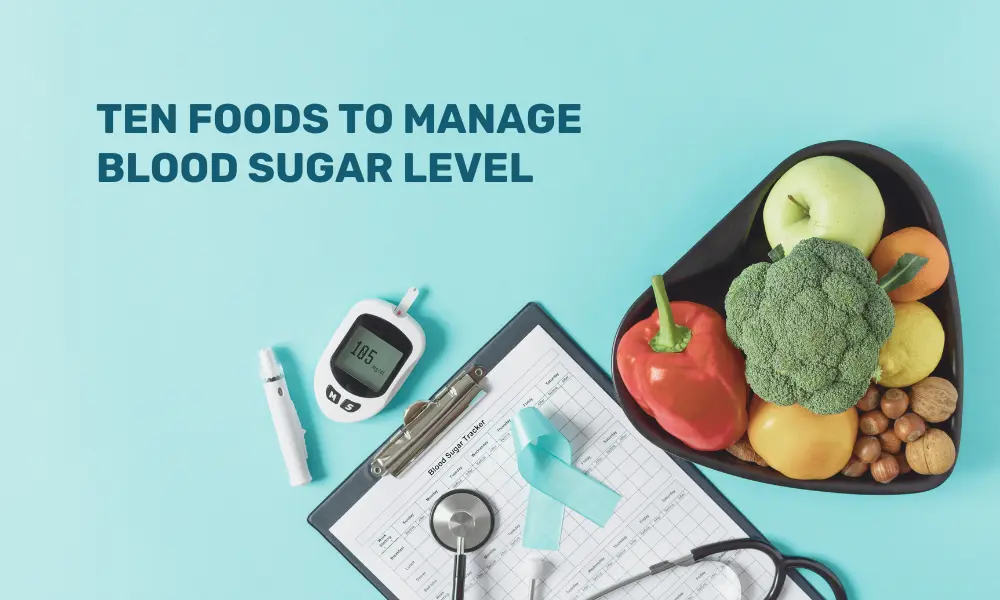Experience a sudden, stabbing pain in your toe, knee, or ankle that seems to hit out of nowhere. Or you have been informed your uric acid levels are rising. You are not alone! High uric acid, or hyperuricemia, is more prevalent than we realize, and diet has a HUGE to do with it.
Let us break it down
Uric acid is a waste product produced when the body metabolizes purines. Purines are present in most foods, and when we eat too many of them, our body is unable to expel the excess uric acid quickly enough. It begins to accumulate in the blood, and presto! That is when it starts causing problems such as gout or arthralgias.
Our in-house expert, Dt. Aparna Pandey, MSC-Nutrition and Dietetics, shares what one should avoid while attempting to maintain sufficient uric acid balance. Let us check out the No-No List!
1. Red Meat & Organ Meats
Okay, this one is a biggie. Red meats like mutton, pork, and beef are high in purines. But organ meats like liver, kidney, and brain are even worse! They are like purine bombs. If you are serious about controlling uric acid, these need to go (or at least be a rare treat).
2. Seafood – Some Are Sneaky!
Although fish is healthy, not all seafood is uric acid friendly. Anchovies, sardines, shellfish (such as prawns, crabs, mussels), and mackerel are high in purines. If you enjoy seafood, choose the lower-purine options, such as salmon, or have portions once a week.
3. Sugary Drinks & Fructose
This one shock many! It’s not only meat sugar, particularly fructose, that is responsible for much of the damage. That includes sodas, bottled juices, and those “health-conscious” energy drinks. Fructose boosts uric acid generation in the liver. Try water, infused water, or fresh coconut water instead.
4. Alcohol – Particularly Beer
Cheers to moderation! Alcohol lowers the excretion of uric acid and raises its production, particularly beer, which is packed with purines. Even wine, if consumed regularly, will raise levels over time. If you have a uric acid problem, it is best to reduce or eliminate it.
5. Bakery & Refined Flour Items
Consider white bread, pizza, biscuits, namkeens, and processed snacks. These might not contain purines, but they contribute to insulin resistance that indirectly impacts uric acid metabolism. An insulin spike translates to uric acid lingering longer in your system. Opt for whole grains like oats, brown rice, or millets instead.
6. Certain Vegetables (But Don’t Panic!)
Now, this is a grey area. Spinach, mushrooms, cauliflower, and asparagus do contain moderate purines, but science proves that they don’t raise uric acid like meat or alcohol does. So unless you’re told otherwise, you can still have them in moderation.
What to include in diet?
-
Fruits: Cherries, berries, oranges, apples especially.
-
Hydrating foods: Cucumbers, watermelon, coconut water.
-
Low-fat dairy: Curd, toned milk, and paneer in small portions can actually reduce uric acid.
-
Lots of water! Try to intake three liters of liquid a day to help flush out excess uric acid.
The Bottomline
A balanced diet, staying hydrated, regular exercise, and weight management all help keep uric acid under control. I always tell my clients, “Don’t think of it as a diet. Think of it as a detox for your joints.” For more nutritional tips, CLICK HERE!
FAQ on High Uric Acid
What foods help lower uric acid?
Dairy products, such as milk, yogurt, and cheese, help lower uric acid levels. The more dairy eaten, the lower the uric acid, according to some studies.
What foods increase uric acid levels?
Foods high in purines, like organ meats, red meat, and certain seafood, can increase uric acid levels. Sugary drinks and foods, especially those with high-fructose corn syrup and alcohol, can also contribute to elevated uric acid levels.
Is egg good for uric acid?
Yes, eggs are generally considered a good choice for individuals with gout and high uric acid levels.





